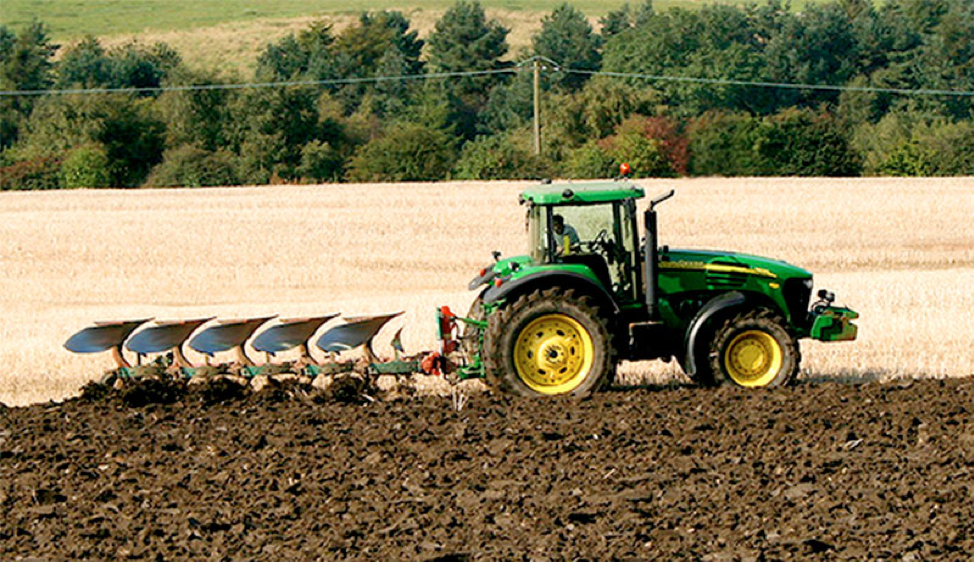What and How to Buy Essential Equipment For Your Farm Business
 If you’re setting up your farm business, you’ll learn that equipment is one of your top investments. It isn’t just about a shovel and soil!
If you’re setting up your farm business, you’ll learn that equipment is one of your top investments. It isn’t just about a shovel and soil!
But with the thousands of different brands, machines, and tools to choose from, it gets confusing choosing the ones you actually need. So read on as I show you what and how to buy essential equipment for your farm business.
The Different Essential Farming Equipment
What are the important equipment you need to invest in for your farm business? These are the ones you need to know about and consider:
1. Compact Tractor
Compact tractors are made for pushing and pulling agricultural tools, which is crucial for cultivating crops, herding livestock, and more. It’s the staple in many farms and businesses in the industry.
When selecting a compact tractor, it should have the power between 15kW to 50kW. Fortunately, there have been technological breakthroughs that make the compact tractor easier to use and more efficient in performance.
2. Tractor Implements
Compact tractors are useless without the right attachments, which are used to accomplish various tasks. Rear and front-mounted tools include loaders, tillers, mowers, seeders, hay balers, sprayers, and many more!
Choose implements that add purposeful versatility and flexibility to your compact tractor. Don’t go for oversized equipment, as this would slow the tractor down rather than have the job finish quickly.
3. Harvesting Equipment
Today’s harvesting equipment allows farmers to save up on time and labor costs come harvesting season. Without such machines, which can work up to 150 acres daily, there wouldn’t be as much harvest! That’s why harvesting equipment is vital, meeting the farm business’ specific needs.
These are quite pricey, so if you use the harvester less than 300 hours yearly, you can consider renting or buying a used harvester.
4. Pickup Truck
Pickup trucks don’t replace tractors but give a transportation alternative for farmers to work on different assignments. It can be used with various tasks in the farm and can also be used to pull trailers, transport goods to different clients, and the like. Plus, you can use it for personal transportation!
5. Livestock Equipment
Equipment related to livestock farming covers those from a shelter, transport, food, and water supplies. All these are essential to ensure that your flocks, herds, and broods are well-fed and healthy for your farming needs.
Livestock trailers are also necessary to easily move animals from one place to another. You should also consider fencing to keep livestock safe.
6. Other Tools
There are also the other basic and well-known tools no farmer can work without!
Top gardening tools like shovels, rakes, hoes, wheelbarrows, and digging forks are a must-have. Appliances in traditional toolboxes are also needed, as well as other manual tools like hammers, wrenches, screwdrivers, tape measurers, and power tools.
Buying Essential Farming Equipment for Business
Now that you’re familiar with the necessary equipment for farm businesses, how do you purchase the right ones? Follow these tips:
1. What Do You Need?
Just like in other industries, material, and equipment that fits one farmer and business may not fit the other. You won’t need everything, and you’ll have restrictions on the equipment to invest in, whether it’s lack of space, use, or budget.
When selecting farm equipment, it all boils down to what you prefer and need. That’s why we can find a wide variety of equipment available.
A good starting point is to be clear on the tasks that need to be performed in your farm business. This will determine the equipment and tools you need to accomplish them.
Ask yourself the following questions:
- Will you be working the land, herding animals, or both?
- What animals are you working with?
- How many acres will you be mowing and tending for?
- Do you need to cultivate the soil and spread fertilizer?
When you determine what you really need, you can officially begin looking for farm equipment that meets specific requirements.
2. Try the Equipment
Similar to purchasing equipment and other materials, you’ll need to research deeply and test it out.
This goes especially to farm businesses getting farming vehicles. These are one of the crucial financial investments!
When taking your pick, consider its ergonomics, ensuring that all parts are well-placed for your comfort. Look into the seat, steering wheel, pedals, throttle and transmission control, among others.
Take the farming vehicles for a test-drive and double-check everything before making a decision. How do you feel when operating the equipment and does it perform efficiently? This will help you measure your productivity and comfort, especially since you’ll be using it hours on end!
3. Check the Price-to-Quality Ratio
Farming equipment can get quite pricey, but that doesn’t mean you get good value from the cheapest or most expensive one. Rather than focusing solely on the price tag, you should consider the price-to-quality ratio.
If you’re dealing with pricey machinery, consider these factors:
- Price
- Power
- Performance
- Prestige
- Parts
- Prestige
- Product support
This can help you measure the purchase value. You should also select a reputable brand that ensures reliability, such as SourcePro Equipment and other similar businesses. You can ask for references from your network or trusted individuals from a similar industry y

 Delicious
Delicious Digg
Digg StumbleUpon
StumbleUpon Propeller
Propeller Reddit
Reddit Magnoliacom
Magnoliacom Newsvine
Newsvine
Comments
Post new comment